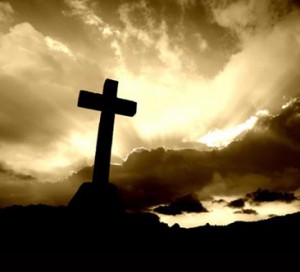A hundred meters upstream, a little girl jumps up and down and runs little circles in the shallows of the stream. In between these contented antics, she dashes back and forth to her parents sitting on the bank, touching them each time for reassurance.
 In the slanting evening light, the scene embodies joy and security, two of the basic elements of every healthy child’s daily life. Given that no parent can provide these things with any degree of reliability in this society and world as they are, one wonders, why are so many people having babies?
In the slanting evening light, the scene embodies joy and security, two of the basic elements of every healthy child’s daily life. Given that no parent can provide these things with any degree of reliability in this society and world as they are, one wonders, why are so many people having babies?
I sit for an hour, watching the outward and inward stream without the observer. Questions, and the chattering mind, give way in the passive observation. And passive observation in turn yields, as it usually does after half hour or so, a spontaneous shift in consciousness.
With the complete ending of control, one literally feels content-consciousness dissolving away. Full sensory perception returns, and there is joy and insight beyond words. This is the true meaning of Jesus’ admonition, “Truly I tell you, unless you return and become like children, you can’t enter the kingdom of God.”
The “kingdom of God” is not, as Christians believe, some rapturous realm for the dubiously righteous, but rather a state of being for the living who do the spadework of self-knowing within themselves. What matters is actual life, not some fictional afterlife. Without leaving the stream of content-consciousness now, the afterlife, if there is one, will just be a pitiful continuation of one’s existence on earth.
What did Jesus really mean by “the kingdom of God?” Certainly he didn’t mean some paradise in the afterlife. That is just too spiritually immature. However, given the penchant for martyrdom emanating from the darkest corners of human consciousness in these dark times, such ridiculous notions are not without terrible, real world consequences.
Not ending content-consciousness while fully alive, even if temporarily, it continues after death. Our ‘unfinished  business’ adds to the collective pool of ignorance and suffering of the living. Fortunately, there is another kind of consciousness altogether available to the human being.
business’ adds to the collective pool of ignorance and suffering of the living. Fortunately, there is another kind of consciousness altogether available to the human being.
Obviously Jesus spoke in the terminology of his time, which was the Jewish tradition. The terminology of our time is science.
The human brain has the capacity to dissolve, through undivided attention, the shackles of memory and thought, and thereby enter a completely different order of consciousness. Given the nightmare ‘higher thought’ has made of the world, why don’t more people care to make the shift?
Is it that the brain, having only known the consciousness produced by memory and experience for tens of thousands of years, subconsciously believes that it must establish its security in some form of thought, sectarian or secular, personal or collective? Is that why the brain continues to base its security on a false foundation, even though it is obviously generating terrible insecurity by doing so?
In modern terms, the “kingdom of God” means effortlessly leaving the stream of consciousness derived from thought and experience. When the brain is no longer anchored in thought, there is another dimension of being.
In short, the “kingdom of God” lies within one in this life, not outside one in the next. The Gnostics, which grew after Jesus was crucified but were brutally suppressed by Roman authoritarianism and institutionalization under the  emerging Roman Catholic Church, had some strange ideas, but they got that right.
emerging Roman Catholic Church, had some strange ideas, but they got that right.
Acquiescence by parents to the propagandistic ‘global war on terror’ is creating deep insecurity in their children, and making this world an increasingly unfit and even impossible place for them to grow. Security does not come with military might and vast, interconnected ‘intelligence’ networks, but through the awakening of true intelligence and genuine cooperation between peoples.
If you don’t believe such a world can exist, for God sakes don’t have children. Too many people, in America at least, are having children as thoughtlessly as they are acquiring dogs, as an escape from their own alienation and loneliness.
Psychological distance is a function of psychological separation. When there is no separation there is no ‘I,’ and so the chasm between the other and one disappears (which doesn’t mean one loses one’s individuality and becomes the other). The irony of individuality is that the more individualistic a culture and people become, the more sameness and less authentic individuality there is.
With some difficulty, I push the bike through a narrow dirt path overgrown with thorny brambles. Riding back I pass three junior high girls, far too old for their years. One says provocatively, “Well, hello.” What a culture, that turns children into adults, rather than adults learning how to “return and become like children.”
Martin LeFevre
martinlefevre@sbcglobal.net

